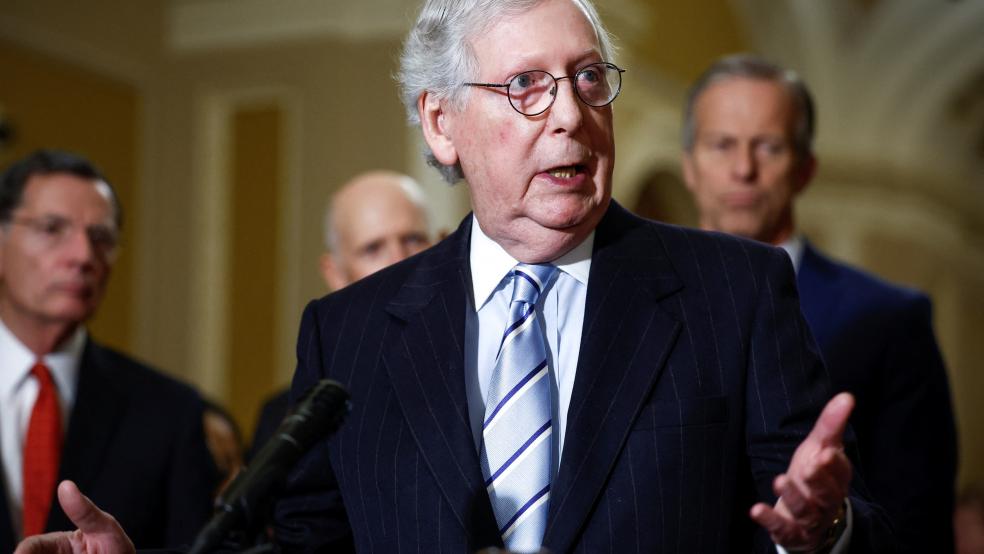Senate negotiators say they are closing in on a high-stakes and politically thorny package of border security measures and emergency foreign aid, but some high hurdles remain — including some key questions about the spending that a deal would entail.
“Our work is largely done,” Sen. Chris Murphy of Connecticut, the lead Democratic negotiator, told reporters. “The conversation has really moved over to Appropriations. So, there's no reason why we couldn't begin consideration this week.”
While Murphy sounded optimistic and Senate leaders had similarly expressed hopes in recent days that an agreement could be brought to a vote this week, Senate Majority Leader Chuck Schumer said Monday that a handful of issues must still be settled and “it’s certainly not a done deal yet.” And Sen. James Lankford, the lead Republican negotiator, told CNN that action this week may not happen. “Everybody’s got to have several days to be able to go through it,” Lankford said. “It’s gonna depend on final timing – it would be quite a push to be able to get it out this week.”
Senate Minority Leader Mitch McConnell, who has been encouraging his members to back a deal, on Monday called the plan being hammered out “the most substantial border security policy in 30 years” and said it is urgently needed. “The entire world understands what’s at stake here in the Senate in the coming weeks,” he said. “America’s national security begins with securing and maintaining our borders. It’s a matter of basic sovereignty. But we’re also a global superpower with global responsibilities. We’re facing serious linked challenges on multiple fronts. … The West’s leading power still has to behave like one and continue investing in our own strength.”
Plenty of hurdles remain, though. The Senate dealmakers reportedly have yet to reach agreement on the issue of humanitarian parole, the administration’s authority to allow temporary entry into the country to certain migrants who wouldn’t otherwise be eligible to be here. Republicans are pressing to limit that power, while the White House has pushed to maintain it.
Even if that and other details can be resolved, a Senate deal may languish in the Republican-controlled House.
While McConnell has been fervently supportive of aid to Ukraine and border security changes, his House counterpart, Speaker Mike Johnson, has indicated that any Senate deal would be dead on arrival in his chamber, where Republicans are largely skeptical of sending additional assistance to Kyiv and conservatives are insisting on their package of more restrictive border policies. Oh, and then there’s former president Donald Trump, who is undermining an agreement and urging Johnson to only accept a deal that is “PERFECT ON THE BORDER.”
The bottom line: There are plenty of reasons why Congress has failed to pass major immigration reform for decades and plenty of factors that could complicate the push for a border deal now. The coming days will be critical.





